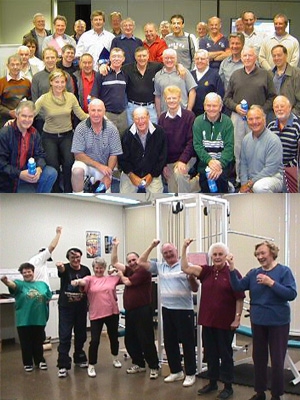Tackling the diabetes epidemic
Research news
Melbourne is experiencing an explosion in type 2 diabetes rates and volunteers are needed from hotspot suburbs to help Deakin experts conduct a world-first trial to improve management of the potentially debilitating condition.
The number of people with type 2 diabetes in Whittlesea, Hume, Melton, Brimbank and Hobsons Bay has more than doubled in a decade. Similarly, the number of residents with the condition has also risen dramatically in Moreland, Manningham, Maribyrnong, Banyule, Kingston and Moonee Valley.
Researchers from Deakin University’s Centre for Physical Activity and Nutrition (C-PAN) now hope to recruit around 200 individuals already living with Type 2 diabetes to take part in the trial to test the effectiveness of a combined therapy to treat the condition.
C-PAN scientists hope to maximise health benefits for people with type 2 diabetes by combining Vitamin D supplementation with increased dietary protein and resistance exercise. It is the first time the combination has been trialled anywhere in the world.
Close to a million Australians have been diagnosed with type 2 diabetes and another 280 are diagnosed every day. By 2031, it is estimated that 3.3 million Australians will have been diagnosed with the condition.
In National Diabetes Week (July 13-19), the focus is on the prevention of type 2 diabetes, which is a serious medical condition that carries potential health complications from heart disease, stroke, blindness, limb amputation, kidney failure and erectile dysfunction. In some instances, it can also reduce life expectancy by up to 15 years.
Yet, in close to 60 per cent of cases, the condition is preventable with a healthy lifestyle. For many people with diabetes, a healthy diet, losing weight and regular exercise help to manage the condition.
Chair in Exercise and Ageing, Professor Rob Daly, a world recognised researcher in the area of exercise and nutrition for preventing and managing chronic disease, has urged Victorians to get involved in the study.
“The results of the study will help inform exercise and nutrition guidelines for people with type 2 diabetes and hopefully reduce the $3 billion annual cost of treating the condition in Australia,’’ Professor Daly said.
“We are hoping to improve the health of people with type 2 diabetes by helping them build strong muscles by adding a daily dose of protein and Vitamin D.
“Strong muscles are the unsung heroes of type 2 diabetes treatment, with lifestyle changes that include energy restriction, weight loss and exercise key to managing the condition.’’
Professor Daly said survey participants will enjoy free health checks to assess their muscle strength and function, bone density, Vitamin D levels and blood lipid and cholesterol levels.
Participants will also get to improve their fitness through a subsidised and supportive training regime that will be provided in a fitness facility close to their home and under supervision.
“Building strong, healthy muscles as a means to improve blood glucose control is often overlooked,’’ he said.
“Muscle is the largest mass of insulin-sensitive tissue in the body and the main reservoir for glucose disposal. To effectively manage type 2 diabetes, it is more about what proportion of your weight is muscle than just about body weight.’’
Professor Daly said Melbourne suburbs considered diabetic hotspots were identified and mapped out in the diabetes epidemic website launched in 2011 by Diabetes Australia – Vic.
Participants need to be aged between 50 to 75 years, be diagnosed with type 2 diabetes and currently not managing their condition through the use of insulin.
For further information or to sign up to the world-first study, contact Eliza on 9244 6739 (e.miller@deakin.edu.au) or Belinda on 9246 8286 (b.deross@deakin.edu.au).
The Deakin University C-PAN type 2 diabetes research trial is funded by the National Health and Medical Research Council of Australia. It is being run in collaboration with Curtin University, Fitness Australia, Baker IDI Heart and Diabetes Institute.
Share this story
 Regular exercise is one key to managing diabetes type 2.
Regular exercise is one key to managing diabetes type 2.
